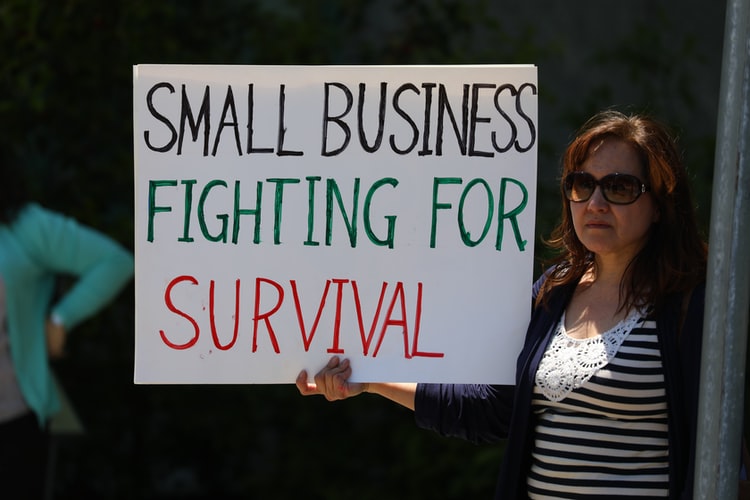A Snapshot of BIPOC-Owned Small Businesses Across the US
5 Mins Read
Published on: 09 August 2021
Last Updated on: 23 December 2024

Small businesses were just one of many entities largely impacted by the COVID-19 pandemic. Across the globe, many businesses, no matter the industry or how much of a cult-following they had in their hometowns, were run out of resources and forced to close their doors. Most of the small-town businesses are having a tough time due to the pandemic season.
One bright spot is that the unprecedented circumstances prompted customers to show an outpouring of support for their local favorites. From family restaurants to local boutiques, many communities did anything they could to keep their local small businesses afloat.
What Is BIPOC?
The world is a crazy place. A diverse paradise filled with different kinds of people. However, not everything is as rosy as some people want you to believe it is. Subsequently, the BLM or the Black Lives Matter Movement really showed us that there are some real problems.
As a result, many organizations came to inception. One such organization is the BIPOC. BIPOC stands for Black, Indigenous & People of Color. It is an active front against systemic racism prevalent in the USA.
BIPOC is more of a social movement that quickly turned into something more. BIPOC-owned small businesses aim to provide a conducive situation for people of color to conduct their business without any form of racism.
Why Should You Choose To Support BIPOC Owned Small Businesses?
As a responsible American, you should consider supporting BIPOC. This is not for the sake of being woke. Nor should you do it because it is socially acceptable. You need to support it because it is the right thing to do. Here are three reasons why you should actually support BIPOC-owned businesses:
- Systemic Barriers: People of color have always faced backlash for years. The worse of them are the systemic ones. Systemic racism stops individuals from reaching their true potential. Hence, you must consider supporting BIPOC as it allows individuals to grow and create a balanced economy.
- Community: Standing by each other is one of the basic and most humane things to do. BIPOC-owned small businesses allow individuals to build that community. A safe space for the communities that were treated as subalterns.
- Vocal For Local: Helping local businesses actually pave the way for a balanced financial situation. Hence making it an important aspect to remember. Therefore, you need to support BIPOC-Owned small businesses as they can improve the business landscape.
How To Support BIPOC-Owned Small Businesses?
BIPOC-owned small businesses can actually be the backbone of a business landscape. Therefore, here are some ways that you can support a BIPOC business with all your heart and soul:
- Always go for small businesses that people of color run. Make this conscious choice, and you will see that you are making a difference.
- Be creative and help out these businesses with their small endeavors and operations. This will take off their financial burden to run the campaign and even allow you to be more creative.
- Follow their social media handles and show them love. A small like, comment, or subscribe can go a long way. Therefore, extend your help in that way.
How BIPOC-Owned Small Businesses Across the US?

One component of many of these campaigns has centered around spreading awareness and support for minority-owned small businesses. These businesses have faced unique challenges of their own over the past year, with the combination of the global health pandemic and recent racial injustice events.
A recent study mapped out the number of BIPOC-owned small businesses across the states, and there are certainly some clear patterns worth noting. Using data from the U.S. small business administration, Edwards Kirby calculated the percentage of overall small businesses that are BIPOC-owned in every U.S. state.
Is BIPOC Owning Small Businesses Making Change?

The state with the highest number of small business percentages is Hawaii, which may not come as a surprise given its large minority population. Interestingly, 54.7% of small businesses in Hawaii are BIPOC-owned.
The second-highest state boasts a significantly lower percentage of 39.3% — Texas. Subsequently, other states that are well represented include California, New Mexico, DC, and Florida, each with more than a third of small businesses BIPOC-owned.
However, not all states fall in this same category. At the opposite end of the spectrum, just 2.9% of small businesses are minority-owned in the northern state of Maine. In total, there are 13 states where less than 10% of small businesses are BIPOC-owned.
Whites make up for roughly 76% of the U.S. population – so it’s no surprise that they might own the majority of small businesses. However, business ownership is largely disproportionate to the population in many northern states, as uncovered by this report.
How Is BIPOC Developing Small Business?
The simple social media campaigns identifying local BIPOC-owned small businesses can make a difference.
As a result, bringing awareness to local businesses that may be currently a hidden gem could be a game-changer for that business’s ability. It can help to keep its doors open during the pandemic (not to mention a game-changer for all your followers who are probably missing out on the best pizza in town just because they don’t know it exists).
We as customers, need to support these small businesses now more than ever. Small businesses are always facing more trouble as the small business financial backup is not the same as the big companies. And they can not incorporate the costly branding of the promotional works.
That does not mean the products are not suitable or services are inadequate. On the contrary, the BIPOC is helping you to circulate the business news among the viewers, and they are taking the initiative to progress the brand names. Therefore, the consumers are getting aware of the small business, and the success ratio of the business is going to increase.
Conclusion:
Small businesses that are all easy need a powerful push to make progress. And BIPOC is just like that. Consumers often ignore the small-scale industry and the company as the brand names are not known. After being owned by the BIPOC, they are taking complete initiatives to make the brand name famous. For the local small business handlers, this is a game-changer. For BIPOC, the consumers are getting aware of the brand name and are willing to take the services.
To read more about BIPOC-owned small businesses across America, read the full report here.
Read Also:


















Comments Are Closed For This Article